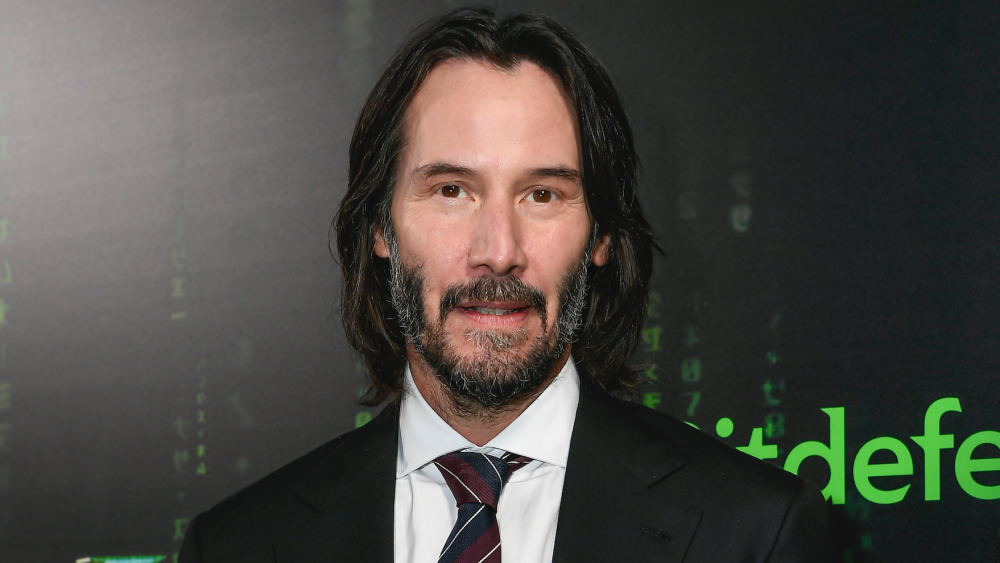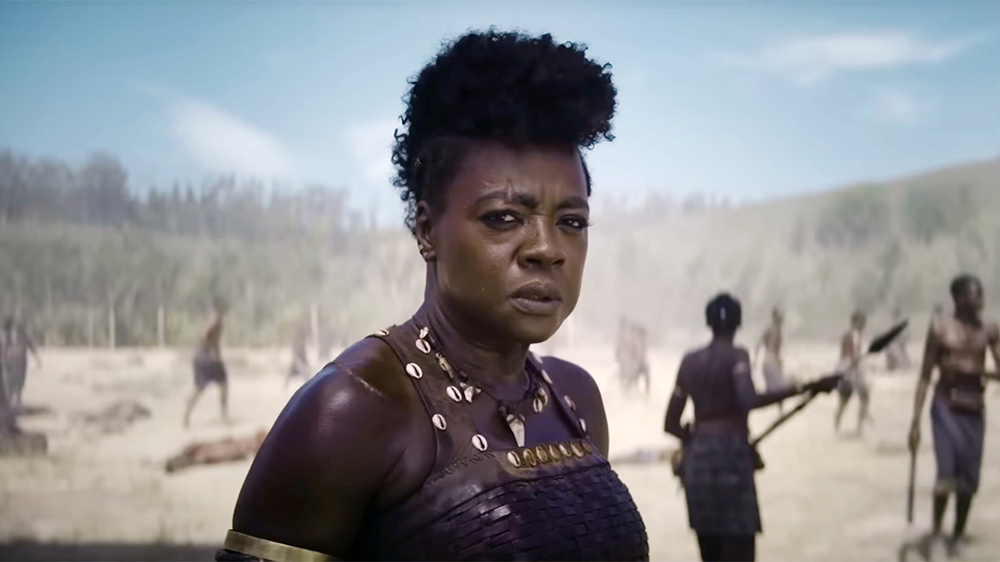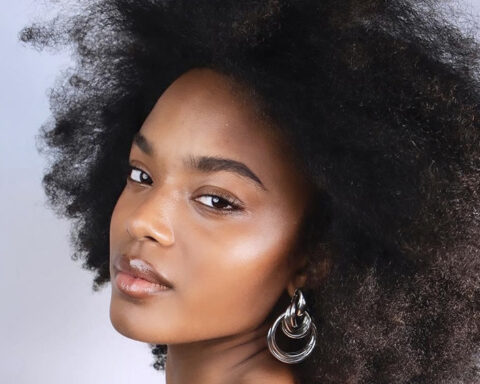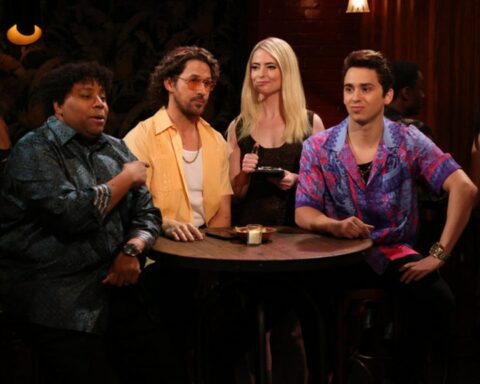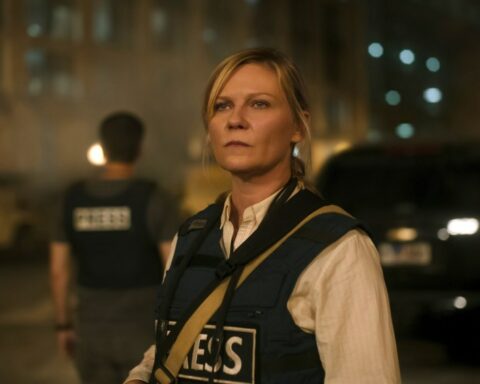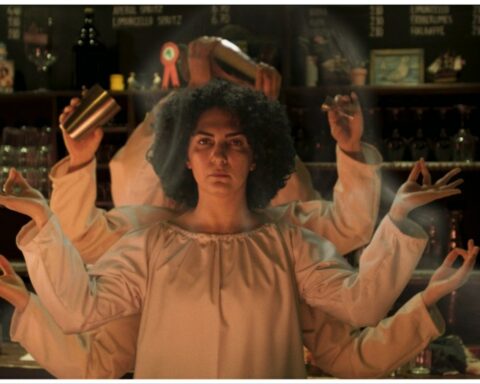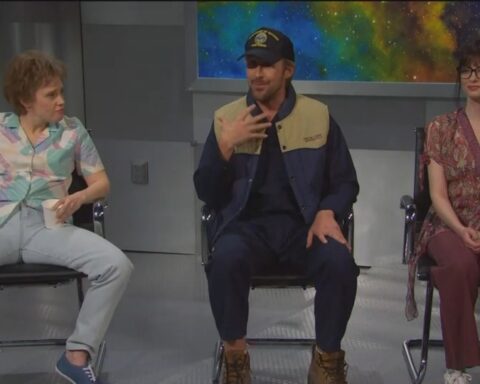Penn Badgley doesn’t actually need to be on the internet to stoke his popularity. He’s already the internet’s boyfriend, and has been since the original “Gossip Girl” premiered in 2007.
Badgley became famous at the exact moment when the celebrity-industrial complex, fed by the toxic brew of the gossip sites TMZ and Perez Hilton, was at its most pernicious — which was the same moment that teenagers everywhere got their hands on their first iPhones. “‘Gossip Girl,’ if you think about it, wouldn’t have happened at any other time,” Badgley says. “That was the spirit of the show: It was Perez. It was TMZ.”
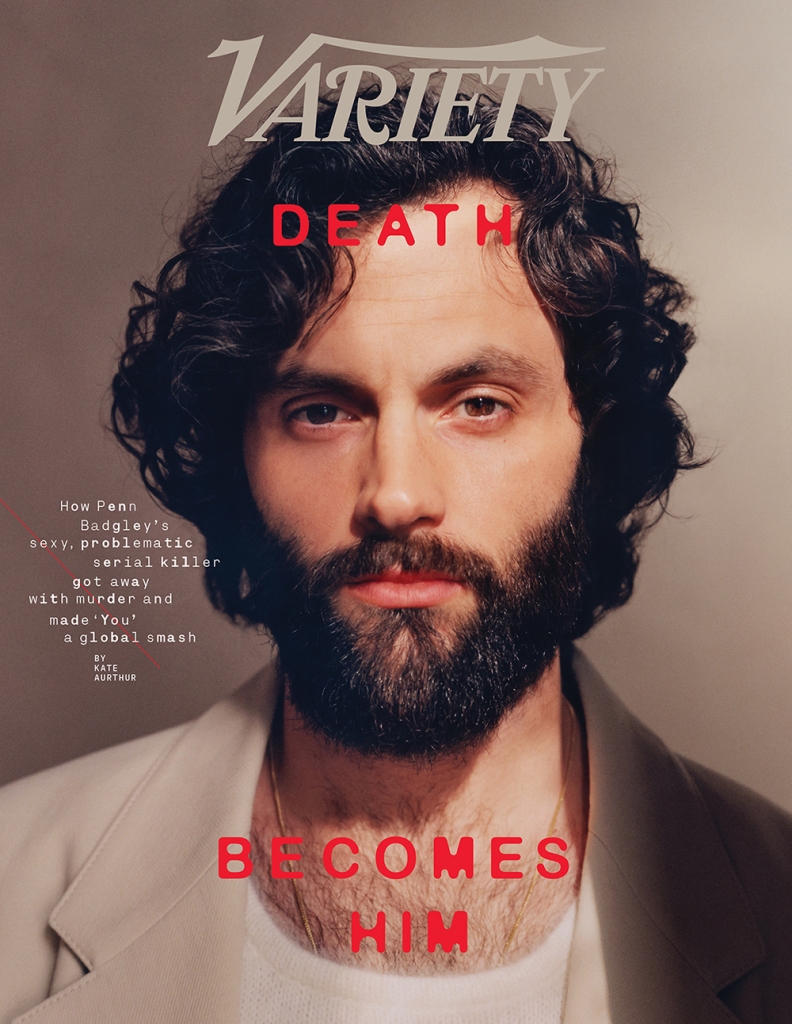
Badgley made it through that poisonous period intact. But now, when it comes to joining social media platforms, he is, understandably, apprehensive. Twitter used to suit Badgley best, he being a news-obsessed man of words, but that’s changed: “I can’t really spend much time on that platform anymore,” he says. Instagram, too, feels “a bit too much like standing on a stage and trying to present,” and Badgley doesn’t need that type of exposure.
TikTok, though, seems to 36-year-old Badgley like “a place for experimentation — and just to honestly have fun.” So last fall, he and his producing partner, Nava Kavelin, decided to dig in: “Basically, like a couple of old people, we were just going through TikTok, like, ‘What’s going on, on this thing?’”
His first effort at a TikTok video, set to Taylor Swift’s anthem “Anti-Hero,” was a nod to Joe Goldberg, the character Badgley plays on his phenomenally popular Netflix series, “You.” Joe — who in Season 1 is a Manhattan bookstore manager broken by childhood abuse — is a charming serial killer whose charisma, physical attractiveness and baggage lead women to fall for him again and again. But then, for one reason or another, whoops!, Joe does it again, killing his various partners and the people close to them. (Netflix has split the 10 episodes of the current fourth season into two parts, with the first five dropping on Feb. 9 — and shooting into the streamer’s vaunted No. 1 slot — and the second batch set to drop on March 9.)
But back to that TikTok. Badgley is well aware of his earnest image, mostly projected onto him by the public because of his portrayal of Dan Humphrey, the brooding “Gossip Girl” character he played for six seasons until the show ended in 2012, and now as Joe, the devastatingly devious embodiment of toxic masculinity. And by goofily lip-syncing to Swift’s chorus — “I’m the problem, it’s me!” — he’s showing he can be funny and playful and not that serious at all.
The video went viral, with Swift anointing it in the comments with an “OMG!!!!🤩” Headlines followed, rejoicing that Badgley had joined the TikTok generation. Even his “Gossip Girl” castmate Chace Crawford saw it. “I was dying laughing,” Crawford says. “I was a tiny bit jealous — I’m like, ‘God, Penn really knows how to work that social media.’ I’m pretty stuck in 2000. I mean, man, I don’t know how to do shit!”
Joining TikTok is a small thing. But for Badgley, it serves as an important “signifier,” he says. He used to resist his fame, but he says the character of Joe revived him as an actor. With Joe, Badgley says he’s “finally exerting the kind of performer that I am.”
Before this period, Badgley was less engaged. During “Gossip Girl,” he did a few film roles that felt like he was on the right track, with small parts in “Easy A” in 2010 and “Margin Call” the following year. He also starred as the doomed folk singer Jeff Buckley, who drowned at age 30, in the 2012 indie “Greetings From Tim Buckley.” There were years when Badgley just went through the motions. He even stopped acting for a bit in 2016, in favor of being the lead singer of the band MOTHXR.
But he feels different now, and like any savvy actor in the digital age, he’s using this spotlight to leverage new paths for himself. Badgley wants to do more as an artist — producing, directing, creating — and he’s excited about what’s next. “Things are so digital, so online,” he says. “I think you’ve got to be fully in or fully out.”
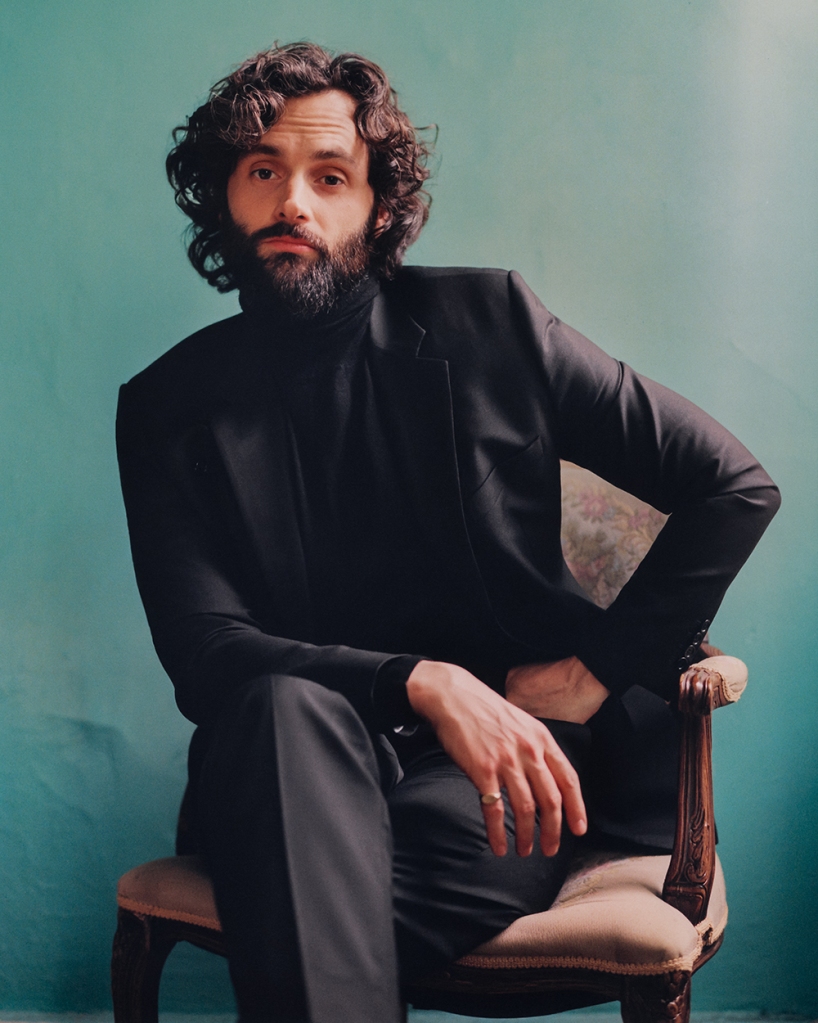
Badgley is a producer on “You,” and this season, he’s directed his first episode — the season’s penultimate, titled “She’s Not There” — which got him into the Directors Guild. Though “You” hasn’t been renewed yet, Badgley and the show’s creative team are expecting that a presumed fifth season would wrap up Joe Goldberg’s twisted story. “We’ve always had a five-season plan for the show,” says Sarah Schechter, the chairwoman of Berlanti Productions and an executive producer on “You.”
As part of being “fully in,” Badgley’s formed a production company, Ninth Mode Media, which has borne the podcast “Podcrushed.” He hosts it with Kavelin and Sophie Ansari, and their interviews with guests such as Lisa Kudrow, Conan O’Brien, Jenna Ortega (who was on “You,” and survived Joe) and Badgley’s wife, Domino Kirke-Badgley, revolve around sometimes painful excavations of adolescence and middle school memories. The “Podcrushed” TikTok account, too, has become another platform for Badgley to create viral content.
And Badgley’s plans for Ninth Mode go beyond podcasting. The company has secured funding for him to direct his first film — which he can begin whenever “You” comes to an end — and has optioned the David Sedaris story “Jamboree” to be developed as a feature.
It’s been a long road for Badgley to get here. He began acting professionally at age 12 after he and his mother moved, at his request, from outside Seattle to Los Angeles so he could pursue a career. But to say he has regrets about having been a child actor would be an understatement. His first movie credit was the 2001 queer cult film “The Fluffer,” and it serves as an illustration of his conflicted feelings. “When I read the script, neither my agents, my mom, nor I knew what a fluffer was — and I was the first one to find out because I read the script first,” Badgley says. “That is a microcosm of the whole thing! Should a 12-year-old be … ? Let’s go ahead and just say no.”
He worked steadily as a teenager, mostly on television. He took the GED when he was 13, and when I express surprise at this disclosure, Badgley dismisses the accomplishment, saying he did it only so he didn’t have to have a tutor on set and could work adult hours, “which makes you more attractive on your résumé.”
Badgley’s relative anonymity as a young actor ended abruptly during the fall of 2007, when, at age 20, he became an instant celebrity as part of the dazzling “Gossip Girl” ensemble. The glossy CW soap opera, in which sophisticated high school students plotted and caroused like adults, was a zeitgeist hit, even if its ratings were low. (“We were always the struggling show that was a worldwide hit,” Badgley says with a laugh.) But fans were obsessed, and he and his co-stars were paparazzi prey in New York City, where they worked and played. And the rapacious gossip press was especially interested in his romantic relationship with his co-star Blake Lively. “Beyond our relationship, I don’t think anybody was going to be interested in me publicly,” he says.
“It was a little bit night and day,” Badgley says of realizing his life had changed when “Gossip Girl” premiered. “I think the date was Sept. 19, 2007.”
Badgley and I meet twice to talk, with the first interview taking place in late October in West Hollywood, and the second late last month over breakfast in Brooklyn, close to where he lives with Kirke-Badgley — to whom he’s been married since 2017 — their toddler and his teenage stepson. During our first conversation, Badgley’s car had just been stolen off the street in Brooklyn, so he kept having to step away to speak with Kirke-Badgley on the phone about logistics. “You feel kind of betrayed, but you don’t know by who,” he says. “My wife, because she’s there on the ground with my kids, I think she’s just … it’s surprisingly emotional. We’ll be OK. We can get another car. We’ve got insurance, all that stuff, but it never feels good.”
During our second meeting, Badgley’s energy feels lighter, and he’s quick to laugh. He was bearded during our first interview, as he is in Season 4 of “You,” but since he’s been in stay-at-homedad mode for a few months, it’s gotten bushier, and his hair is longer too. While it had made sense during the show’s first three seasons for Joe to hide his murderous self behind a more clean-cut look, Badgley pushed for him to have a beard this time — and won. But then, “I was just wanting the hair to be as long as possible,” he says. “And they were like, ‘Mmm, less.’ We found a happy medium.”
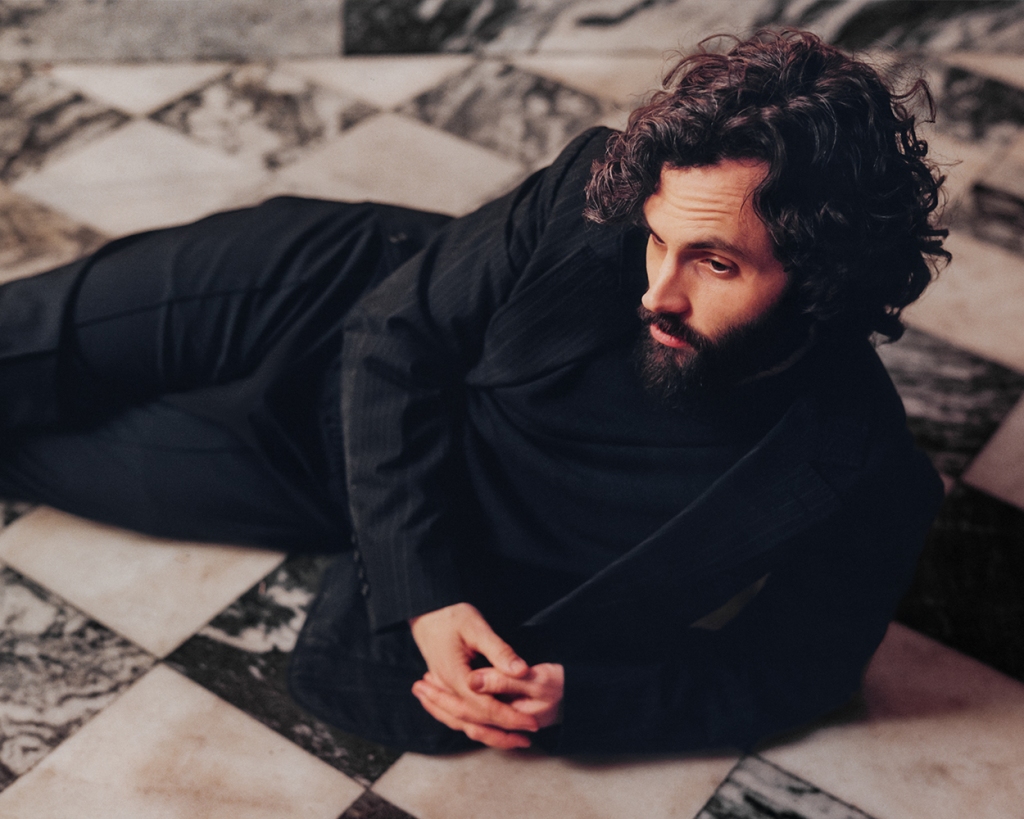
In person, Badgley is serious and thoughtful. But he’s also affable, dryly funny and open to answering anything, no matter how personal.
More than a decade ago, “Gossip Girl” was nearing its end. For years, while doing the show, “I didn’t want to be in television,” he says, and “I was biding time a lot with Dan — I was not invested. And I’m not saying it’s a good thing! I’m saying it’s just what it was.”
When he looks back on those years, “there’s two ways I see them.” “Fun and fast-paced” is the first way he’d characterize that era. But underneath was a “dark undercurrent that would bottom out in my later 20s.” I ask whether any of the darkness was substance abuse-related, and he waves me off. “To be honest, I never struggled with substance,” Badgley says. “Blake didn’t drink, and I think our relationship in some ways saved me from forcing myself to go down that road.”
That’s interesting phrasing: “forcing myself to go down that road.” It indicates that when Badgley found himself facing “nothing short of a spiritual crisis,” he sought solace from all corners: by traveling, exploring Buddhism, trying “a lot of physical techniques, from breathing to meditation,” and throwing himself into political causes, such as Occupy Wall Street. As for what had provoked this state of emergency, he smiles somewhat bashfully as he answers: “Like anybody who experiences some degree of fame and wealth, I was presented with the universal truth that not only does it not make your life better or easier, it actually can greatly complicate things, and make you quite unhappy.”
He felt isolated; he didn’t know who to trust. “I was never anything that I would define as suicidal at all, but I was certainly in a despair,” Badgley says. “It had to do with ‘Do I matter? Do I matter? Does anything matter?’ These questions do inform how we feel. The answer that I came upon was ‘Yes.’ I think we all have to come to that. I don’t know how you could come to ‘No’ and be happy, so we all have to come to that ‘Yes’ somehow. Probably repeatedly.”
Traveling led him circuitously to the Baha’i faith, through a man he met in Colombia while both were living with the Kogi tribe. This almost sounds like a parody, but the man was the “other young white dude from New York City.” They didn’t stay in touch, but “over the years we just connected in these really serendipitous ways,” and through him, Badgley discovered “the mystical poetry of Baha’u’llah” — the founder of Baha’i, who lived in Persia in the 19th century — “which really started speaking to my heart.”
In Badgley’s telling, it was in August 2014, after the death of Michael Brown and the #BlackLivesMatter protests began in Ferguson, Mo., that he went further into the world of Baha’i. “I was thinking a lot about social change, social action, social transformation — but also my own transformation, my own change,” he says. He saw Baha’i teachings, which say that we’re all connected, as offering “the most committed pathway from individual transformation to social transformation.”
“I thought to myself, ‘If I really want to participate in the betterment of the world, I think that I should become a Baha’i,’” Badgley says.
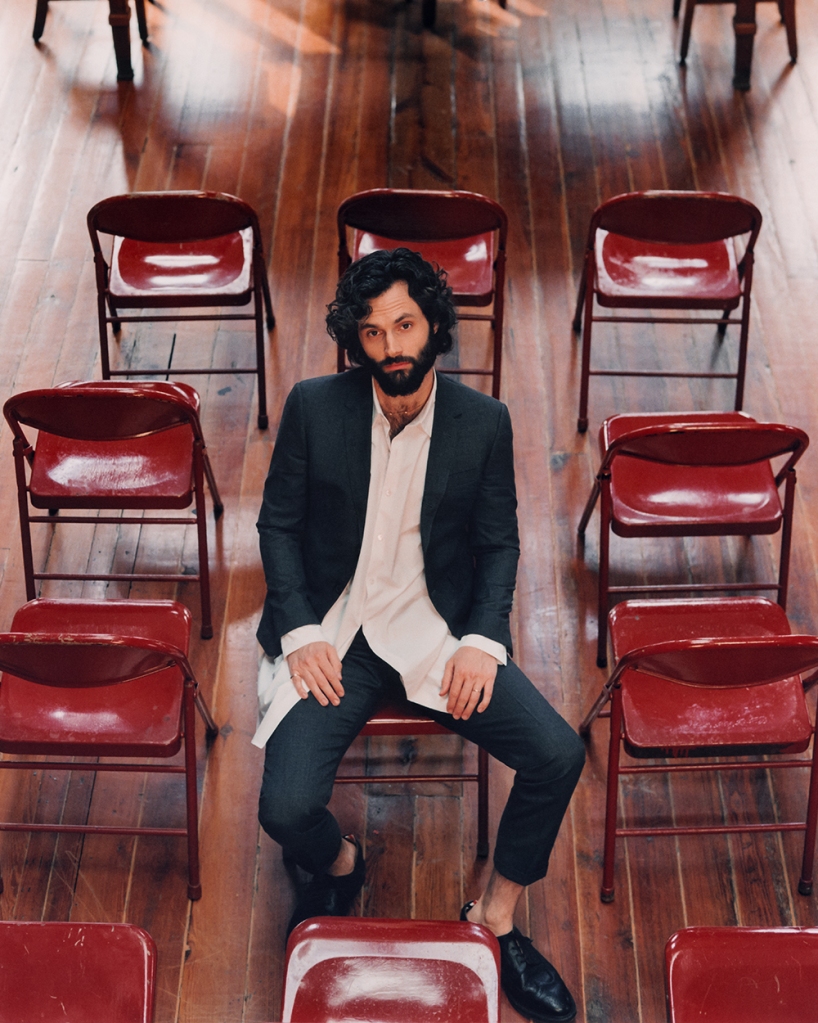
He formally declared himself Baha’i in May 2015, “but that’s just a step along the way,” Badgley says. He’s since found his place in “this really interesting, eccentric group of people,” which includes his “Podcrushed” co-hosts. Consequently, of all the performing arts, “singing is the thing I do the most,” he says. “It’s a part of my spiritual practice — my prayers are often me singing.” When he’s not in production, he wakes up with his young son, and they sing together.
It certainly seems like Badgley has found peace. And he’s ready for what comes after “You” as well. In the opinion of Sera Gamble, the “You” showrunner who’s worked with Badgley for almost six years, “I think he has more than proven that he’s someone people really, really want to watch.” She pauses, then laughs. “But, you know, Penn gets to do whatever he wants.”
So what does Badgley want? He’s been starring on television shows off and on for more than 20 years. “I did most of that without any kids or spouse, you know? Or any real consideration for family — and now all that’s very different,” he says. “And I didn’t do it with anything other than the pipe dreams of being a producer or a director or writer. Now I’m in the DGA, and I’m a producer on the podcast and have the rights to a Sedaris story. … ”
Badgley stops talking for a bit, appearing to consider what lies ahead: more acting, sure, but also producing, podcasting, directing, writing. He then looks resolute as he finishes his thought. “If this is how I’m going to exist in a way that for me is sustainable — emotionally and spiritually and psychologically — then this is how I’m gonna do it.”
It’s funny to think that when Badgley was first approached about “You,” he absolutely did not want to do it.
Playing someone like Joe Goldberg just wasn’t appealing, despite it being alluring to Badgley that the character subversively took “the tropes of Dan Humphrey, put it in a blender and sort of reconfigured and re-served it,” he says. But having found peace in his life, he had little desire to play someone so awful.
Less typically, he was also concerned with how inherently sexual the role was, and how many intimate scenes he would have to film. In later seasons, the show has had an intimacy coordinator, but when production began in 2017, that job didn’t exist. The whole series revolves around Joe’s romantic fixations, and how he gets the women he’s fallen for to submit to his charms. “You” has a ton of sex.
Badgley speaks carefully as he describes his discomfort with sex scenes, “having done a fair amount of them in my career.” “It’s not a place where I’ve blurred lines,” he says. “There’s almost nothing I could say with more consecration. That aspect of Hollywood has always been very disturbing to me — and that aspect of the job, that mercurial boundary — has always been something that I actually don’t want to play with at all.” He’s also now older than his romantic interests on the show. “Didn’t used to be the case,” he says.
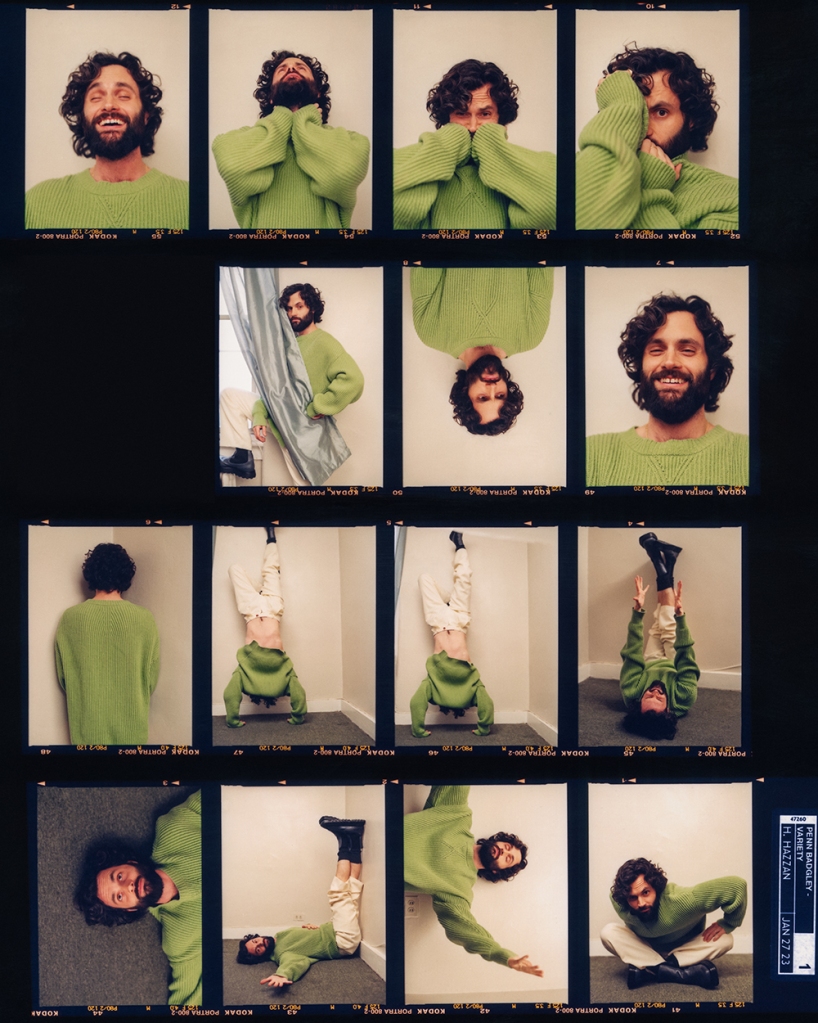
In fact, Badgley wishes he didn’t have to do any sex scenes. “It’s important to me in my real life to not have them.” (The scenes in the current season of “You” are all done fully clothed.)
“Your ‘real life’?” I ask.
“My fidelity in my relationship,” Badgley says. “It’s important to me. And actually, it was one of the reasons that I initially wanted to turn the role down. I didn’t tell anybody that. But that is why.”
But Kirke-Badgley “encouraged” him to play Joe: “And I wasn’t going to listen to anyone more than her.”
As those conversations with his wife were happening, he was also being won over by executive producers Greg Berlanti, Schechter and Gamble. “I felt his energy change when he realized that we were all on the same page about why we would tell a story about a character like this — it was in no way to justify Joe,” Gamble says. “It was to vivisect him, to figure out why a milder version of this character is the lead in most romantic stories in the Western canon.”
At one point, Badgley remembers, Berlanti referred to “You” as “a love story” — which caused Badgley to bristle. He told Berlanti, “I don’t think of this as a love story. But just assuming that it is, for a moment, then what is it saying about love?”
“Greg took the perfect dramatic pause,” Badgley remembers, “and he said, ‘I’m not sure, but I think we’ll discover that together.’ A role in a television show had never offered me that level of collaboration. And that’s what caused me to stop my retreat from the possibility and be like, ‘Hmm, that’s cool.’”
So appealing is Badgley as Joe Goldberg that a lustful segment of rabid “You” fans frequently declare on social media that they want nothing more than to be stalked and kidnapped by him. This disturbing, persistent Joe-as-thirst-trap phenomenon is something Badgley is horrified by, and has addressed publicly a number of times, including answering a simple “No thx” to a fan who tweeted, “kidnap me pls.”
As Schechter puts it: “It’s not easy to have the world rooting for you when you’ve murdered as many people as Joe Goldberg has.” She remembers that first wave of viewers’ unhealthy feelings for Joe. “Everyone was like, ‘I want Joe Goldberg to murder me,’” she says. “And Penn was like, ‘Ladies, no! Do not. Do not be attracted to this man.’ He’s just a very solid human being who recognizes the importance of playing this part and the chance to showcase and create discussion around toxic masculinity.”
Originally based on a book by Caroline Kepnes, “You” is an addictive, utterly mad character study while also being a layered satire about the aforementioned toxic masculinity. The success of “You” rests largely on Badgley — the only actor who’s appeared in all four seasons — and his ability to charm the audience into sticking with the show.
Without Netflix, though, “You” would have been one and done. It premiered on Lifetime in September 2018 and was an absolute mismatch for the “Television for Women” cable network — a total of 650,000 people watched it. “You” bombed, and Lifetime canceled it that December.
But before the show premiered, Netflix had signed on as its streaming partner, licensing its reruns and international rights. So when the first season of the already canceled “You” dropped on the streamer on Dec. 26, 2018, it became a massive, meme-generating smash, and the conversation around the show was suddenly ubiquitous. Back then, Netflix was reluctant to share its ratings, but “You” proved the rare exception: After the show hit the streamer, the company tweeted that “You” was on track to be watched by 40 million households within its first four weeks.
Having turned the series into an international phenomenon, Netflix, of course, resurrected it, quickly putting a second season into production. According to Netflix’s publicly available stats, “You” has only grown: Its third season spent eight weeks in the streamer’s global Top 10, and reached the Top 10s in 94 countries. It’s still wildly popular in Season 4 — a rarity for a Netflix show.
“You” is — among its other attributes — a fascinating exercise in the power of perspective and the camera’s gaze, and since Joe is the point-of-view character, it’s hard not to worry for him, and fear he’ll be caught. “You forget that he’s irredeemable! And you’re constantly wondering if he can redeem himself,” Badgley says. Which makes Joe’s shockingly violent nature and overall loathsome existence even more unsettling. “Everybody must have moments when they’re like, ‘How do I like this show so much?’”
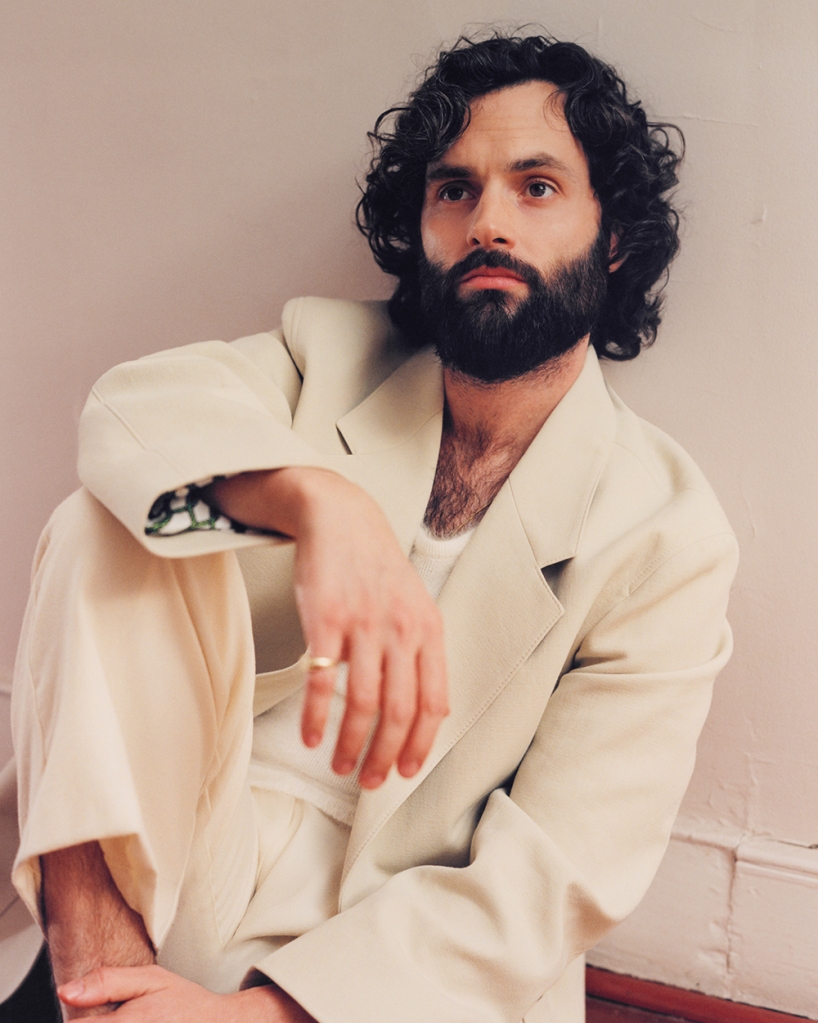
Over four seasons, Joe has romanced/murdered his way through New York City, L.A., Madre Linda (a fictional, affluent Bay Area suburb) — and now, in Season 4, London.
But wherever Joe goes, there he is. Gamble says, “What we’ve basically been telling ourselves for these four seasons is that Joe goes crazier every season.”
In London, Joe has a new identity as Jonathan Moore, a university professor who’s come to Europe to stalk his Season 3 quarry, Marienne (Tati Gabrielle). But when he tries to start over, embedding in a new group of highsociety friends, he finds himself in an all-too-familiar situation — that is, with a dead body in his apartment. The season then takes the form of a whodunit, as Joe seeks out the tormentor who’s setting him up by killing others in the group. By the end of the fifth episode, Joe has discovered what he thinks is the answer.
Naturally, he has a love interest this season in Kate, played by Charlotte Ritchie. Like so many before her, Kate saw the darkness in Joe before becoming captivated by him.
But this is “You,” so nothing can be taken at face value, and where Joe ends up in the finale will shock even the most astute viewers. “They always manage to stick the landing,” Badgley says. “The triple axel of every season finale is very hard.”
As the streaming age of television matures, there have been more and more bumps along the way, beginning with Netflix’s correction last year, which caused the whole industry (and Wall Street) to question whether this model will ever pay off. But for all that agita, “You” is one of the period’s great successes.
As for how the show will end — will Joe be justly punished after everything he’s done? Badgley finds the question interesting. “Is killing Joe enough?” he wonders. “Whoever kills him is brought down to his level.” He has an idea of what Berlanti and Gamble have in mind, but won’t say what it is. “I think it’s the only way it can go,” he says.
Putting those questions aside, directing an episode this season fulfilled a long-standing wish. When I ask what surprised him the most about it, he answers quickly. “Maybe that I really loved it? Not that I expected not to, but — I loved it,” he says. “It reinvented the show for me.”
Despite how much Badgley took to directing, he’s pretty sure he doesn’t want to do it again during a presumed fifth season of “You.” It was too much. After a day of acting, he’d come back to his place in London — he was staying with Kirke-Badgley’s aunt during production — and work with editors in Los Angeles over Zoom.
“I was managing it, and not even feeling exhausted at all — I was very alive to the work,” he says. “And it was really enjoyable, but extreme and unsustainable. And if my family had been there, I would have had zero time for them.”
Even if that does turn out to be the only episode of “You” Badgley directs, let it be known that it contains a Taylor Swift reference. So does that mean Joe is a Swiftie?
“I think, unfortunately, he would despise her,” Badgley says. “Because she’s successful and blond, maybe? I don’t know, but I think he would.”
Fashion Director: Alex Badia; Fashion Market Editor: Emily Mercer; Fashion Market Assistant: Ari Stark; Groomer: Amy Komorowski/The Wall Group; Look 1 (cream blazer): Blazer: Tommy Hilfiger; Top and pants: Tanner Fletcher; Shoes: Berluti; Look 2 (dark suit, white shirt); Suit and shoes: Thom Browne; Shirt: Nili Lotan; Look 3 (green sweater): Sweater and boots: Jill Sander; Pants: Tanner Fletcher; Look 4 (blue wall, seated): Suit: Dior; Sweater: Hermes; Shoes: Louis Vuitton; Look 5 (lying on checkered floor): Blazer: Berluti; Sweater: Frame; Pants: Hermes; Shoes: Thom Browne

